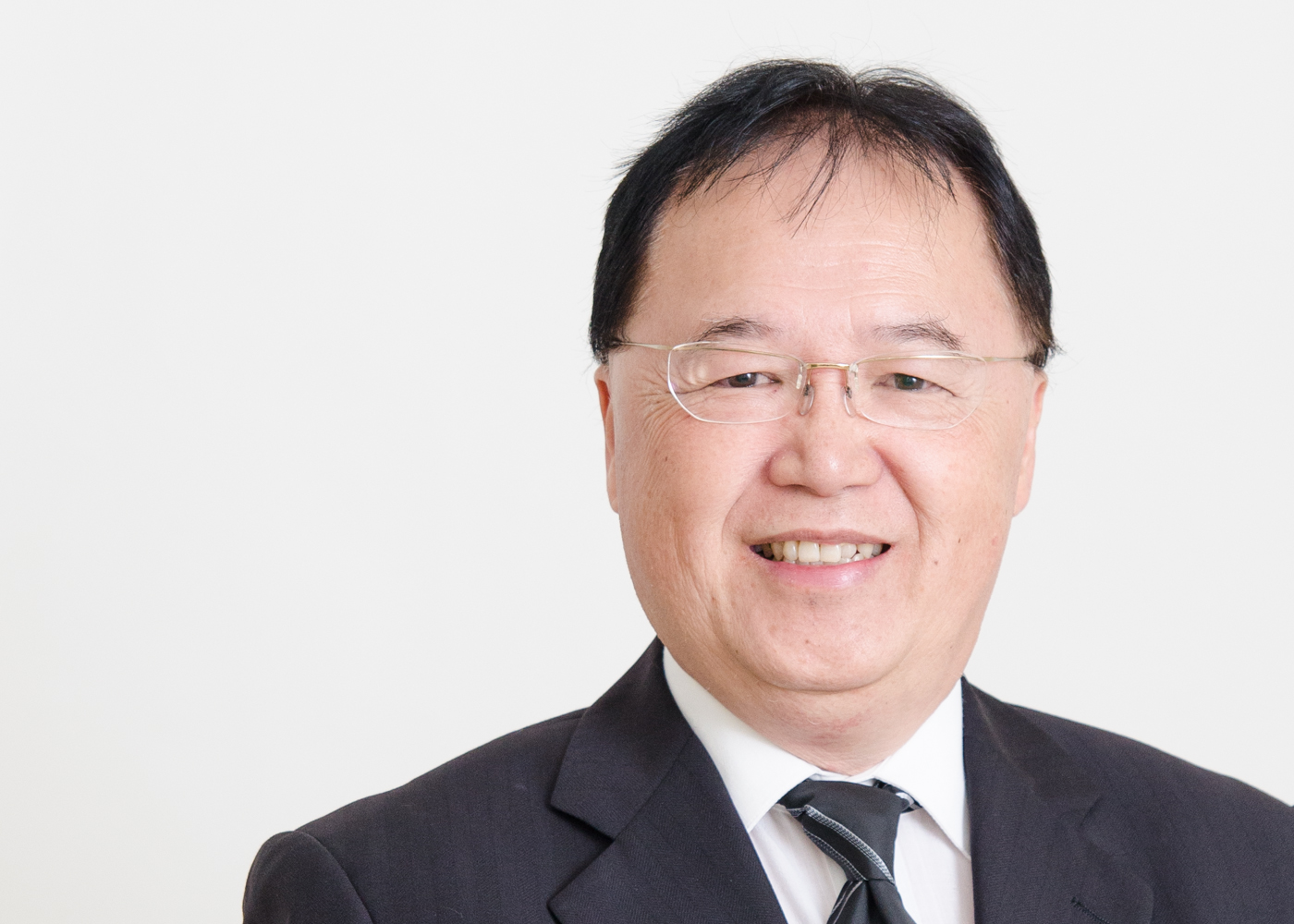The Columnist(TC) talks to Jeffrey Chiu, Co-founder of Consulus about his insights and experiences from Hong Kong to South-east Asia.
TC: Tell us about your experience before you became a partner at Consulus
My work experiences started from the age of eighteen when I worked as an office clerk for a regional director at a British Conglomerate. In those days, you had to work your way up. So I went from a salesman to businesses development manager, and from an accounting clerk to eventually becoming a Finance Director.
I was seconded to Singapore in 1989 to look after Rexam’s – my last employer – remaining interests in the Far East. I formed my own company as a consultant after Rexam sold its Indonesian interests in 1997. My consulting experience included advising startups, small and medium enterprises in areas such as business development, human resource, finance, organisational, restructuring and secretarial matters.
TC: How was China back then?
During the seventies, China had no clue on how to run a business professionally and efficiently as compared to the West. They did not know any corporate methodologies. In those days, they thought that they can sell anything that they produced. Packaging and branding were not on their minds. To the Chinese companies, contracts and agreements were just pieces of papers with a lot of corporate stamps but there is nothing that anyone can do when there are breaches.
I remember once, our London office signed a contract for 100,000 pairs of yellow slippers for their client in Africa. On the 5th shipment, the slippers received were all for the right foot. And when it came to the 6th shipment, the same thing happened but this time all the slippers were green. We then went to Guangzhou to find out what happened. The manager told us that our order was assigned to various factories, one for the right foot, another for the left foot which were then packed in pairs by another forwarding factory. What happened before the 5th shipment was, the factory which produced the slippers for the left foot caught fire and was burnt down. On the 6th shipment, the factory which produced slippers for the right foot had no more yellow color ink so they produced green ones instead. Of course, the packing company then simply proceeded to ship whatever they had! After this explanation, the manager even asked us if we would like to continue with the contract as if nothing had happened.
Another experience was: one of our trading companies in Hong Kong had placed an order with a factory in Tung Wai, Shenzhen, for 100,000 Christmas glass bells for our client in West Germany in March. But by the 1st of December, after numerous reminders, we heard nothing back, so we decided to visit the factory. When we arrived at the factory, there were a lot of Christmas bells scattered all over the factory floor. I told the manager, that he had to ship out, latest by the 10th of December. Seeing that there was no response on 15th December, we called the factory manager from Hong Kong, telling him that he has to airfreight the bells directly to West Germany. On the 20th, the German client called us and said that he did get the bells but all were broken because they were packed in flimsy carton boxes without any protection!
That was China then, it was really an adventure and hilarious at the same time.
TC: What do you think are the challenges facing China?
China is complex and I would prefer to share my thoughts through three stories.
Unpredictable legislation
From then till now, there is still uncertainty in Chinese law. Of course in the early days, it was even worse. Once, we ordered 10,000 live chicks from Shenzhen for a poultry farm in Hong Kong. But for unknown reasons, the chicks were held up and detained at the customs in Shenzhen. We went up to the customs and was told that a new legislation had come into effect that morning, requiring all live animals to be quarantined before coming into Hong Kong. The officer then told us that it would take approximately 2 to 3 weeks to get the paperwork done. Meanwhile, the chicks had to be detained while the paperwork is being processed! History seems to repeat itself, just look at the latest Chinese ruling requiring all government-linked companies in China to stop engaging consultants from the US.
Overhyped
Recently I was in Bejing with ten other friends. We had gone to the Olympic Sports Centre for a free foot massage. The Centre showcased a lot of photos, awards and trophies that were won by athletes. We were then brought into a huge room, and were told to sit and relax on sofas. After about twenty minutes, entered twenty-five persons in track-suits, each carrying a bucket of warm water who then sat in front of us. Five then stood on a platform. Then a man in the middle started speaking, saying how important foot massage is, how crucial it is to your life, and how it affects the functionality of your organs etc… for about thirty minutes. Then the person in front of me picked up a packet of herbal pills, melted them in the warm water and told me to soak my feet. After about five minutes of soaking, the person dried and started massaging my foot. During the process, she began to ask about my health, which part of my body felt painful during the massage, where I came from, if I have a bathtub at home, do I exercise regularly, and if I felt tired after an exercise. All these questions were meant to help her identify ways to sell me more herbal pills. And the pitch was to try and sell us a year’s supply of pills. Needless to say the entire treatment took almost three hours since none of us bought anything except one friend. He was saddled with a year’s supply of ‘magic’ pills because he could not resist the charms of his masseuse.
Poor Management of Expectations
We got into a taxi to go to the most popular Peking Duck restaurant in Beijing. The driver said, no problem and proceeded to talk about this restaurant. He told us that the owner has his own farm for raising the ducks, that the ducks exercise every day with nice country music playing in the background, and has good ventilation systems installed. Before slaughtering the ducks, an injection is done under the duck’s wing so that the blood is kept within its body and not spill out. So one of the famous dish in the restaurant is known as “duck blood cake”. After hearing this, we had a good laugh but were curious to verify the claims.
So we arrived, ordered the famous Peking duck but found that the taste is nowhere near the good ones in Singapore. So obviously, we never ordered the legendary duck blood cake.
TC: You were in Indonesia for a while, what was it like?
In early 1992, EDB Singapore introduced the Indonesia – Singapore – Malaysia Growth Triangle to attract investors. Rexam intended to set up a packaging factory in Batam. Initially, the site visit was not a very pleasant experience, the road to the site was not properly done, and it was very dangerous especially when it rained. We recruited four Indonesian managers to run the factory. Surprisingly, our factory managed to start operations in a relatively short time and the first shipment began in March 1993. But still challenges were plenty, and we found that Indonesia had many local lords who could change the rules on the fly. So the inconsistency made it impossible for us to continue our stay in Batam, which was why I was then tasked by the company to close down the operations.
TC:What is the difference between working in Hong Kong and in Singapore
In Chinese we say that the basic needs in life are Clothing, Food, Dwelling and Mobility.
In terms of Clothing: In Hong Kong, I have 4 seasons therefore I needed four different kinds of clothing. But in Singapore, I only have two seasons, wet and dry so I needed only 1 kind of clothing which makes life simpler
In terms of Food: In Hong Kong, the major cuisine is Cantonese food. In Singapore, there is a wide variety of cuisines so this made life more interesting.
In terms of Dwelling: In Hong Kong, I worked my whole life and still, I was paying rent or instalment for a small cubicle. But in Singapore, I worked for only ten years and I managed to own two apartments much bigger than the one in Hong Kong.
In terms of Mobility: In Hong Kong, I owned a Honda but that gave me a lot of problems. It broke down easily because the roads were hilly and it was not easy to find a reliable repair shop. I got fined easily because I had nowhere to park. In Singapore, I own a Toyota Altus. It has a five-year warranty and one year free service. I can find a lot more reliable repair shops and it is easier to find space to park.
Finally in Hong Kong, companies are more willing to accept orders first before figuring out if they will make a profit Whereas in Singapore, companies tend to ensure profitability before accepting any orders.
TC: What do you love in your work at Consulus?
Consulus gave me a lot of opportunities to meet people from all over the world, a free hand whenever I am called upon to offer my financial and business advice.
My advice to companies is this: Always learn from your mistakes, enhance your sales methodologies, and watch your expenditure. Take care of your staff and be fair to them. Never allow your company to enter into a loss-making state. Be alert and manage your balance sheet well especially on your liabilities. If you do this consistently and with purpose, you will shape the world.
Jeffrey advises CEOs and senior leadership covering the Asia Pacific. If you like to have a chat with Jeffrey, he can be reached at jeffreychiu@consulus.com
This article is part of The Columnist, a newsletter by Consulus that offers ideas on business, design and world affairs. For past issues, browse the complete archive.




